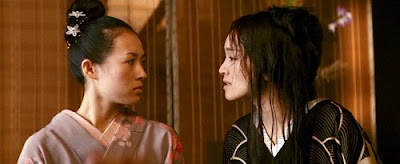 |
| © A24 | Source: knightfoundation.org/ |
UK; 128 min.; documentary, biography, music
Director: Asif Kapadia
Cinematography: Matt Curtis
Starring/ Interviewees: Amy Winehouse, Mitchell Winehouse, Janis Winehouse, Raye Cosbert, Nick Shymanksy, Blake Fielder-Civil, Yasiin Bey, Tyler James, Juliette Ashby, Lauren Gilbert, Pete Doherty, Blake Wood, Tony Bennet, Mark Ronson, Salaam Remi, Andrew Morris, Sam Beste, Dale Davis, Cristina Romete, Chip Somers, Shomari Dilon, 'Spiky' Phil Meynell, Monte Lipman, Lucian Grainge, Guy Moot, Darcus Beese, Nick Gatfield
I don't think I'm going to be at all famous. I don't think I could handle it. I'd probably go mad, do you know what I mean? I would go mad. – Amy Winehouse
My contribution to Women’s History Month is a little less historic and the impact of the subject will only be determined in the future. I chose to take a look at Amy, the Academy Award winning documentary about troubled soul and Soul singer Amy Winehouse. I was neither a particular fan of her music (although I can certainly appreciate her talent) nor is there any particular historical or societal significance (in the sense of activism, charity, ...) to her that would justify a citation in this category. Still, the award recognition of the documentary as well as the recognition of the quality of Amy Winehouse’s music motivated me to take a closer look.
And Amy sure deserves checking out. The Asif Kapadia documentary roughly recaps Amy’s life story from when she first got into the business at around 16 years old to her premature death in 2011. Amid background-serving childhood flashbacks the documentary takes the viewers into closed quarters of first record- and manager deals, the recording studio, and even Amy Winehouse’s vacations and escapes from reality. The audience is taken on an emotional journey that starts with the discovery of a young and headstrong talent and follows the unravelling of a depressed and overwhelmed twenty-something.
What we can take away from the portrait of this woman is that passion and talent are admirable features that are appreciated by people – no matter how troubled or young and inexperienced you are. You are also able to overcome your own demons (even if only temporarily in this case) to create something amazing. And maybe you can also draw strength from the life of Amy Winehouse, who did a lot in her 27 years of life despite continuously facing new setbacks and struggles. But most of all the inclusion of Amy in our Women’s History Month feature may serve as an eye-opener to be equally headstrong and cautious, and that asking for help doesn’t necessarily signify weakness.
Technically Amy largely uses home videos and press/ paparazzi footage as well as a large number of interviews presented as voice-overs. Friends and family must have all pitched in to provide material that really shows the woman behind the music. The interviewees are chosen in large number and with very different perspectives on Amy’s life, ranging from parents, to close friends, producers, and famous collaborators, providing a seemingly rounded picture. All too often documentaries can be manipulated by a very one-sided choice of information, but here it doesn’t seem overtly so. Kapadia created an extensive documentary (I mean two hours is really bordering on too long) that works without any artificial and plot furthering elements to provide a raw and close to honest image. Hand-held camera footage, interviews, and Amy Winehouse’s songs are enough to tell a chronological and revealing story. To me it was especially moving and slightly horrifying how deeply personal and reflecting of her current situation the lyrics of Winehouse’s popular songs really were. I don’t think I’ll ever be able to mindlessly blab along to the radio and her overplayed singles such as Rehab ever again. And that is a testament to this film. I honestly couldn’t care less about Amy Winehouse before, but now I can appreciate how much she gave to her music.
Surprisingly enough Amy holds the promise it sets out to: To provide an up close and personal look at the Amy Winehouse behind the music. As it turns out her music already is an open window to her soul, but raw and uncut footage really brings home the message. While a little too long for my taste, the length gives the movie depth and room to really track the different behind-the-scenes stages of her career. There is no overt guiding of opinion. Still you cannot help but feel for this woman and be moved by her fate – self-inflicted or not. By the end of Amy, I was feeling raw and emotional and a good bit creeped out (by her demons, I guess). In any case a well-made documentary and “a portrait of the artist as a young [wo]man”.















